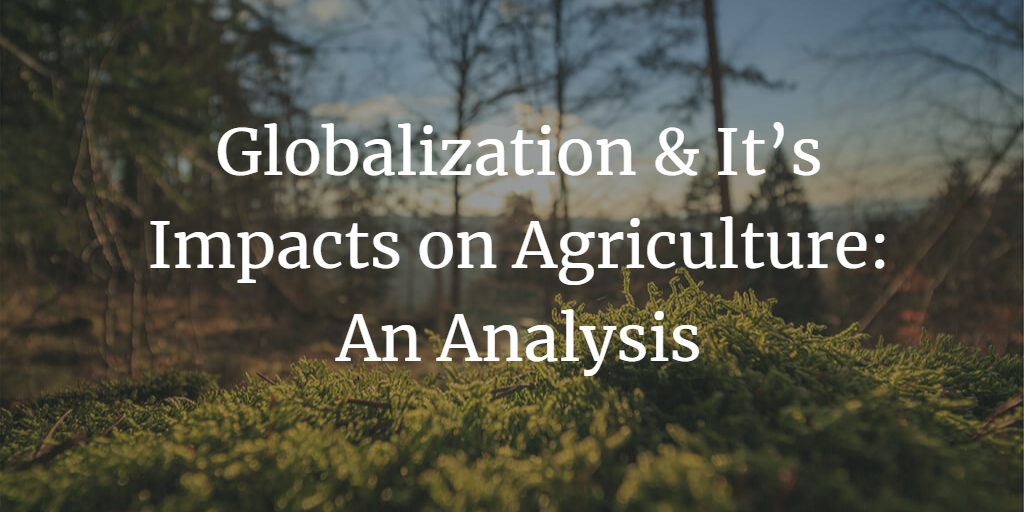Globalization & It’s Impacts on Agriculture: An Analysis

Table of Contents
Introduction
Positive Impacts of Globalization on Agriculture
Challenges Posed by Globalization
Recommendations
Conclusion
Introduction
Globalization has transformed various sectors of the Indian economy, including agriculture. As India integrates more closely with the global economy, the agriculture sector experiences both opportunities and challenges. This article examines the positive impacts of globalization on India's agriculture, the challenges it faces, and offers recommendations to maximize the benefits while addressing the issues.
Positive Impacts of Globalization on Agriculture
Globalization has brought several benefits to India's agriculture sector, including:
Market access: Increased global trade has opened up new markets for Indian agricultural products, enabling farmers to access a wider range of buyers and increase their income.
Technological advancements: Globalization has facilitated the transfer of modern agricultural technologies and farming practices to India, enhancing productivity and resource efficiency.
Investment: Foreign direct investment (FDI) in agriculture has increased, leading to improved infrastructure, research, and development in the sector.
Diversification: Globalization has encouraged Indian farmers to diversify their crops and explore high-value commodities, such as horticulture, floriculture, and fisheries, to meet international demand.
Challenges Posed by Globalization
Despite the opportunities, globalization also presents challenges for India's agriculture sector:
Competition: Increased global competition has exposed Indian farmers to price fluctuations and the risk of being outcompeted by cheaper, subsidized agricultural products from developed countries.
Environmental concerns: The adoption of high-yielding varieties and intensive farming practices has led to concerns about soil degradation, water depletion, and loss of biodiversity.
Inequality: The benefits of globalization have not been equally distributed, with small and marginal farmers often lacking the resources and knowledge to capitalize on new opportunities.
Food security: Dependence on global markets and the shift towards cash crops may compromise India's food security by reducing the production of staple food crops.
Recommendations
To harness the potential of globalization while addressing its challenges, the following recommendations can be made:
Policy support: Develop policies that support domestic agriculture, including subsidies, price stabilization mechanisms, and crop insurance, to help Indian farmers compete in global markets.
Capacity building: Invest in capacity-building initiatives to improve farmers' skills, knowledge, and access to information, enabling them to adopt new technologies and practices.
Sustainable farming: Promote sustainable agriculture practices that balance productivity with environmental conservation and long-term resource management.
Infrastructure development: Strengthen agricultural infrastructure, including irrigation systems, storage facilities, and transportation networks, to improve farmers' access to markets and reduce post-harvest losses.
Food security: Prioritize food security by encouraging the production of staple food crops and maintaining strategic reserves to safeguard against global market fluctuations.
Conclusion
Globalization presents both opportunities and challenges for India's agriculture sector. By implementing the recommendations outlined above, India can capitalize on the benefits of globalization while addressing the associated challenges. Ultimately, this will help Indian farmers compete in global markets, ensure sustainable agricultural practices, and maintain food security for the country's growing population. By fostering a supportive environment for the agriculture sector, India can continue to strengthen its position in the global economy and enhance the livelihoods of millions of farmers.


